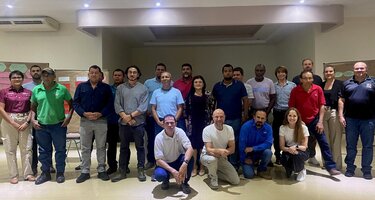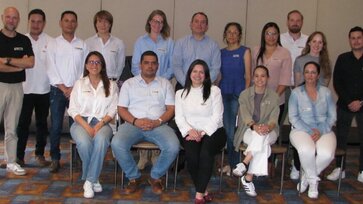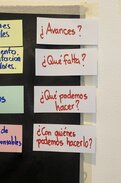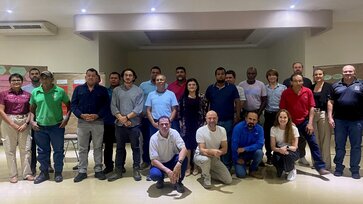The German Retailers Working Group Enters Phase Two
At the end of 2024, implementation plans were developed for the next phase of the German Retailers Working Group’s activities to promote living wages in the banana sector in Costa Rica and Colombia. This marks the official start of a second phase of engagement by ALDI Süd, ALDI Nord, Kaufland, and Rewe.
Workshops with Stakeholders: Advancing Living Wages Together
In October 2024, stakeholder workshops were held in Guápiles (Costa Rica) and Medellín (Colombia), bringing together key actors from the banana sector in both countries. The goal was to present the findings from the first phase of the project, which had been implemented since autumn 2023. During this initial phase, the GIZ, on behalf of the retailers and the German Federal Ministry for Economic Cooperation and Development (BMZ), carried out a series of studies to gain a comprehensive understanding of the sector and the situation of workers and their representatives. The results were shared in the workshops and served as a foundation for jointly planning the next steps in phase two.
Systemic Approaches Instead of Isolated Solutions
During the workshops, participants collaboratively developed action points that would support the advancement of decent work and living wages. This joint process not only fostered dialogue between different stakeholder groups, but also resulted in a preliminary activity plan that received broad consensus. A key success factor was the active participation of ALDI Nord, whose representatives traveled to Costa Rica and Colombia to engage directly with workers, trade unions, producers, civil society organizations, and public sector actors. In line with the principle of shared responsibility, the retailers involved in the working group are committed to working together to ensure the project’s success.
Phase two of the project focuses on improving sustainable purchasing practices, strengthening worker representation, and enhancing wage data collection and monitoring systems. The overarching objective remains the same: promoting the payment of living wages and decent working conditions on banana plantations. “The working group is committed to developing systemic solutions, rather than relying on isolated project-based interventions,” the group stated.
No Project Continuation in Ecuador
In Ecuador, where the project was initially launched, it will not move into a second phase. Due to a lack of agreement with both public and private sector partners on the project’s basic activities, the German Retailers Working Group and the BMZ jointly decided to conclude the project in the country.
Both the German government and the participating retailers have committed to promoting living wages and decent work throughout their global supply chains. With the upcoming Corporate Sustainability Due Diligence Directive (CSDDD), this commitment will become a legally binding obligation that all banana producers must comply with. Freedom of association and the inclusion of all relevant stakeholders are central, non-negotiable principles in this process.



